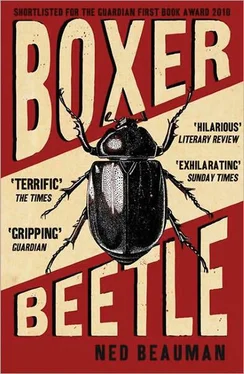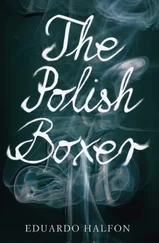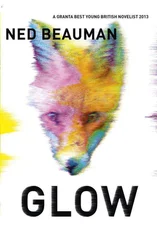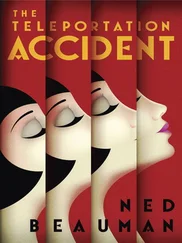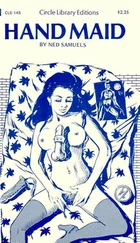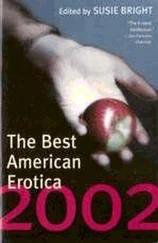I mention all this only so that you can understand that I am not like Grublock. Not like him at all. Once, I heard my former employer explain his vast collection to an investor from Russia. ‘In a sense, I suppose, I am a Nazi,’ he said thoughtfully. ‘I admire their ambition. Their courage. Their style, in the Nietzschean sense. They allowed no exceptions to their vision, and that is a lesson we should all learn. And of course I love the architecture, although sadly most of it only exists as blueprints.’
‘But you also hate Jews?’ said the Russian.
‘Certainly not. As I said, I have great respect for certain aspects of Nazism, but not for their odd, embarrassing phobias. All that is irrational, and I’m no irrationalist. You can easily tell the collectors with those leanings. They have the books purportedly bound in human skin and the bars of soap purportedly made from human fat. Idiotic. It’s almost impossible to tell tanned human skin from tanned pig skin, and the soap myth is simply that. But they so want it to be true that they will waste their money anyway. That is, if they’re not deniers — in that case, you’ll find none of the nasty stuff but probably some contemporaneous documentary “evidence” proving that Dachau was just an experimental vegetable garden, or some such rot.’ He drained his gin and tonic. ‘No, I certainly don’t hate Jews. I feel sorry for the Nazis’ victims, in as much as it’s possible to feel sorry for a mass of proletarian foreigners who died decades before one was born. And I admit that Hitler was probably mad, or evil, or an utter bastard, in as much as there is any difference between the three, and in as much as it makes any more sense to apply those words to a dead dictator than to apply them to an earthquake or a hurricane. And I think it was wrong to try to take over Europe, in as much as any one man’s chosen political aims can be any more or less legitimate than any other’s.’
The absurd thing, by the way, about Grublock’s collection, which occupied the upper floor of his triplex penthouse, was that it outdid the Nazis themselves: never in the history of the Deutsches Reich would half so much finery have been gathered together in one room. It was more as if some Las Vegas entrepreneurs had started a casino in the eighties called Hitler’s Palace. The centrepiece of the simulacrum was a glass case containing the Luftwaffe uniform of General Walter von Axhelm, including his Knight’s Cross and his emerald-encrusted ornamental hunting dagger with a blade that belonged originally to Napoleon. Beside it was Grublock’s most valuable treasure, a gorgeous porcelain falconry chest made for Hermann Goering. The rest of the room was crammed with more uniforms, medals, weapons, torture devices, ornaments and paintings, all lit by small dim spotlights. The walls were draped with long red silk banners with black swastikas on white circles. It was a wonderland. So when Grublock wouldn’t even give me a hint of what Zroszak was doing for him, I could be sure that the detective was on the trail of something truly extraordinary.
I changed back out of my pyjamas and went downstairs to the car. Happy Fried Chicken, over which I live, was full of drunkards as usual — its popularity used to baffle me until I found out one of the cooks sells cannabis. It was a cold night, and as I drove over to a block of flats near the canal London felt like a whispered conversation between street lights. I wanted to listen to the radio (there’s a pirate station I like called Myth FM) but I could find nothing on my crippled car system but shreds of white noise. The London air must be heavy with static, I always think, the electromagnetism rising from cars and microwave ovens and telephone wires — another thin dead residue of the city, like rust and dust and soot — I have no doubt the rats and pigeons and cockroaches have learned to navigate by it.
When I got to Zroszak’s flat I buzzed his intercom but no one answered, so I waited in the cold until a girl in a grey dress came out and I grabbed the outer door as it swung shut behind her. She wrinkled her nose as she went past. Upstairs, the door of 3B was slightly ajar. The lock was broken. I knocked, but again there was no answer, so I said ‘Mr Zroszak?’ and pushed the door open.
Inside the small, sparse flat I saw Zroszak kneeling behind a desk as if he were praying, with his head slumped forward so that his face was hidden. There was dried blood on the edge of the desk and a dark stain where it had dripped on to the carpet. As I moved closer I could see the greenish black veins bulging on his forehead, and smell the rot already coming on like an old dull blade being slowly sharpened. All this was quite familiar from the many television dramas I watch about glamorous forensic investigators — the ones which almost make one want to be murdered just to have such a sexy woman hold your lungs in her soft hands, the ones where they primp the crime scene like an ageing film actress, with powders and tweezers and respectful murmurs — but I wasn’t a detective and I just wanted to turn around and run away.
Shaking, I dialled Grublock.
‘Fishy.’
‘He’s dead,’ I said.
‘Oh, fucking hell. How?’
‘Shot, I think. With a gun.’
‘Fucking hell. Bloody Japanese, I bet. One of those awful little consortiums. They get up to vulgar nonsense like this all the time. Well, thank you, Fishy. Go home. I’ll send someone over who knows what they’re doing.’
I hung up. Looking around, I realised that the place had been ransacked. The drawers of Zroszak’s filing cabinet were open but empty, and there were no books on any of the shelves. On the desk, next to the murdered man’s head, were a sketchpad, a pencil, a rubber and a book called How to Draw Dogs and Cats . Apart from that, if there had ever been even the slightest trace of Zroszak’s personality in his comfortless flat, it was missing now, like the moral of a story forgetfully told.
If I could find out anything important, I thought, Grublock would probably buy me a Panzer tank for Christmas. But even if Zroszak’s killer or killers had missed anything, there was no way I could search for clues with Zroszak’s body there. Just the thought had me running to the tiny kitchen for an ice cube to suck on — my late mother’s trusted remedy for anxiety.
The light in Zroszak’s freezer was broken, and the ice tray was stuck to the bottom surface. I pulled on it hard, and it came away with a little cough of frost. As it did so, something dropped to the tiled floor.
I bent down and picked it up. It was a sealed foil packet, like an astronaut might have for his tomato soup. I cut it open with my Swiss Army knife. Inside was a yellowed sheet of paper, folded in quarters. I smoothed it out on the kitchen table and glanced over the typewritten text. The letter was headed with the address of the Führerbau on Arcisstrasse in Munich, dated 4 October, 1936, and directed to somebody called Philip Erskine at a street in Clerkenwell. When I saw the signature of the sender, I scrabbled desperately for an ice cube.
Dear Doctor Erskine ,
I have received gifts from popes, tycoons, and heads of state, but none have ever been so singular or unexpected as your kind tribute. It is a reminder that the conquests of the scientist are every bit as important to our future as the conquests of the soldier. I hope you will keep me informed of the progress of your work — perhaps one day the Third Reich will have a position for you. How is your German?
Fond regards ,
Adolf Hitler
Reichschancellor
I spent the next half hour searching every inch of Zroszak’s flat. His body didn’t matter any more. But I found nothing.
Читать дальше
